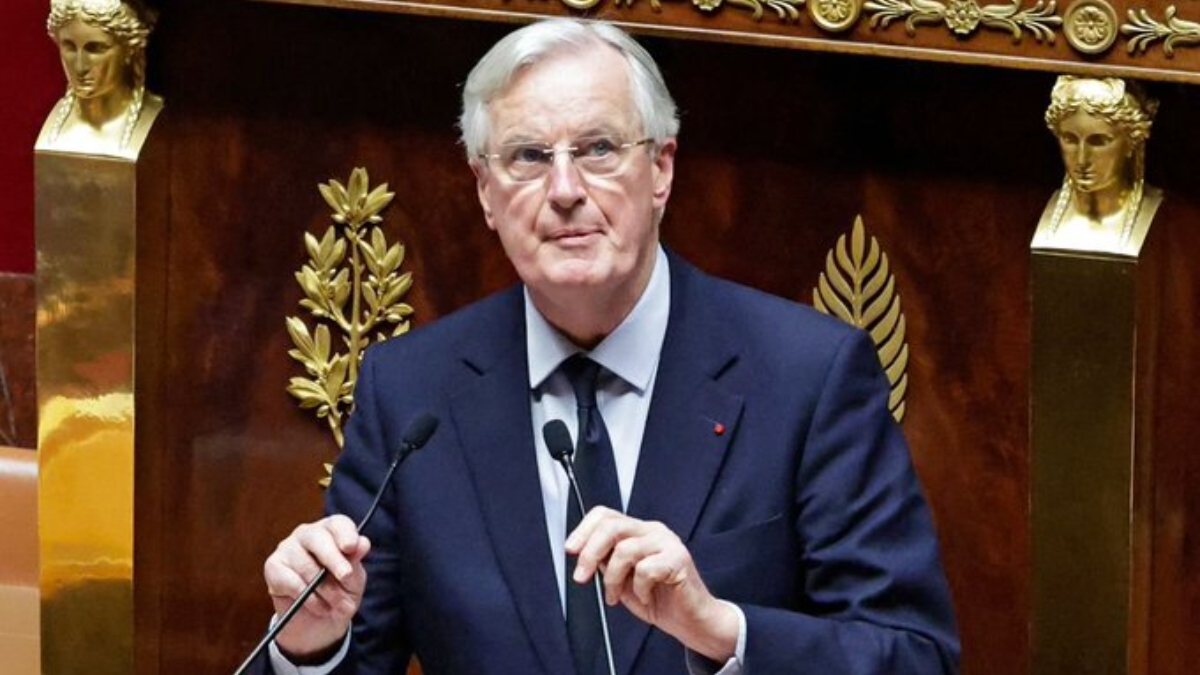France: Michel Barnier resigns as Prime Minister after historic no-confidence vote | X
Paris: French President Emmanuel Macron believed that his Prime Minister Michel Barnier whom he had appointed on 5 September this year had the right cards to fulfil his role; an impeccable CV, robust political experience, the super Brexit negotiator on behalf of the European Union between 2016 and 2021, mature like fine wine, with a Gaullist heritage and a lack of personal ambitions for the next Presidential elections in 2027.
Despite his immense potential, Barnier, the former European Commissioner failed. Deprived of a majority in the Assemblée Nationale, the National Assembly or the Lower House of the French Parliament, he was overthrown on Wednesday evening. One may as well call Barnier, ‘the ephemeral PM of French history’, having spent only 2 months and 29 days at the PM’s office what the French call ‘the Matignon’.
His attempt to apply article 49.3 of the French Constitution to the Social Security budget didn’t go down very well with the other deputies of the Parliament. This omnipotent article 49.3 allows the government to pass a law without a vote unless of course the Parliament passes a vote of no confidence against the government.
And this is exactly what happened in the French Parliament on Wednesday afternoon. The motion of no confidence tabled by the leftist coalition, New Popular Front was adopted by 331 deputies which is 43 votes more than the absolute majority of 288 votes that is required.
Although, Emmanuel Macron is under no obligation to oust Michel Barnier, this vote has forced the Prime Minister to resign. He handed over his resignation letter to the President on Thursday morning. Barnier thus becomes the shortest-lived Prime Minister in the history of the Fifth Republic of France.
The Fifth Republic which is the present political system in France was established by the first President elected under this Republic, Charles de Gaulle in 1958.
73-year-old Barnier from the Les Républicains, a rightist party, held the position of Prime Minister for less than 3 months. This very short duration places him in last position in the longevity ranking of government heads of the Fifth Republic. Barnier’s tenure at the Matignon was more short-lived than that of former PMs Bernard Cazeneuve (5 months and 9 days) and Gabriel Attal (7 months and 27 days).
On the other hand, French Prime Ministers who have remained in office the longest are Georges Pompidou (6 years, 2 months and 27 days), under the presidency of Charles de Gaulle, and François Fillon (4 years, 11 months and 22 days), under Nicolas Sarkozy. Jacques Chirac held this position twice, during two separate periods, once under Valéry Giscard d’Estaing and then under François Mitterrand.
Ever since Emmanuel Macron came to power in 2017, five Prime Ministers have succeeded one another with increasingly shorter longevity making the post a rather precarious one. Edouard Philippe (3 years, 1 month and 18 days), Jean Castex (1 year, 10 months and 13 days), Elisabeth Borne (1 year, 7 months and 24 days) and then the young Gabriel Attal and now Michel Barnier.
Barnier’s appointment ended a long drawn period of suspense. He was chosen by Macron only two months after the second round of early legislative elections on 7 July. The absence of an absolute majority in the National Assembly had placed the weary Macron in an utter dilemma in his choosing his Prime Minister.
Even though Macron was confident about his choice of President, he made an error by choosing a PM from a political party whose numbers in the National Assembly represent barely 39 elected representatives.
This is far from the 178 parliamentarians that the leftist New Popular Front has. Barnier was always considered illegitimate by the left which expected a PM from their wing. The left had vowed to overthrow him ever since he came into office.
As for the rightist National Rally, it made it clear that Barnier’s political fate was at its mercy. It had always warned that he was being watched. This pushed Michel Barnier to constantly seek brownie points from the extreme right, much to the displeasure of the leftists, but also that of his own turf. From Brexit, to his own exit; Barnier’s days at the Matignon were numbered.
